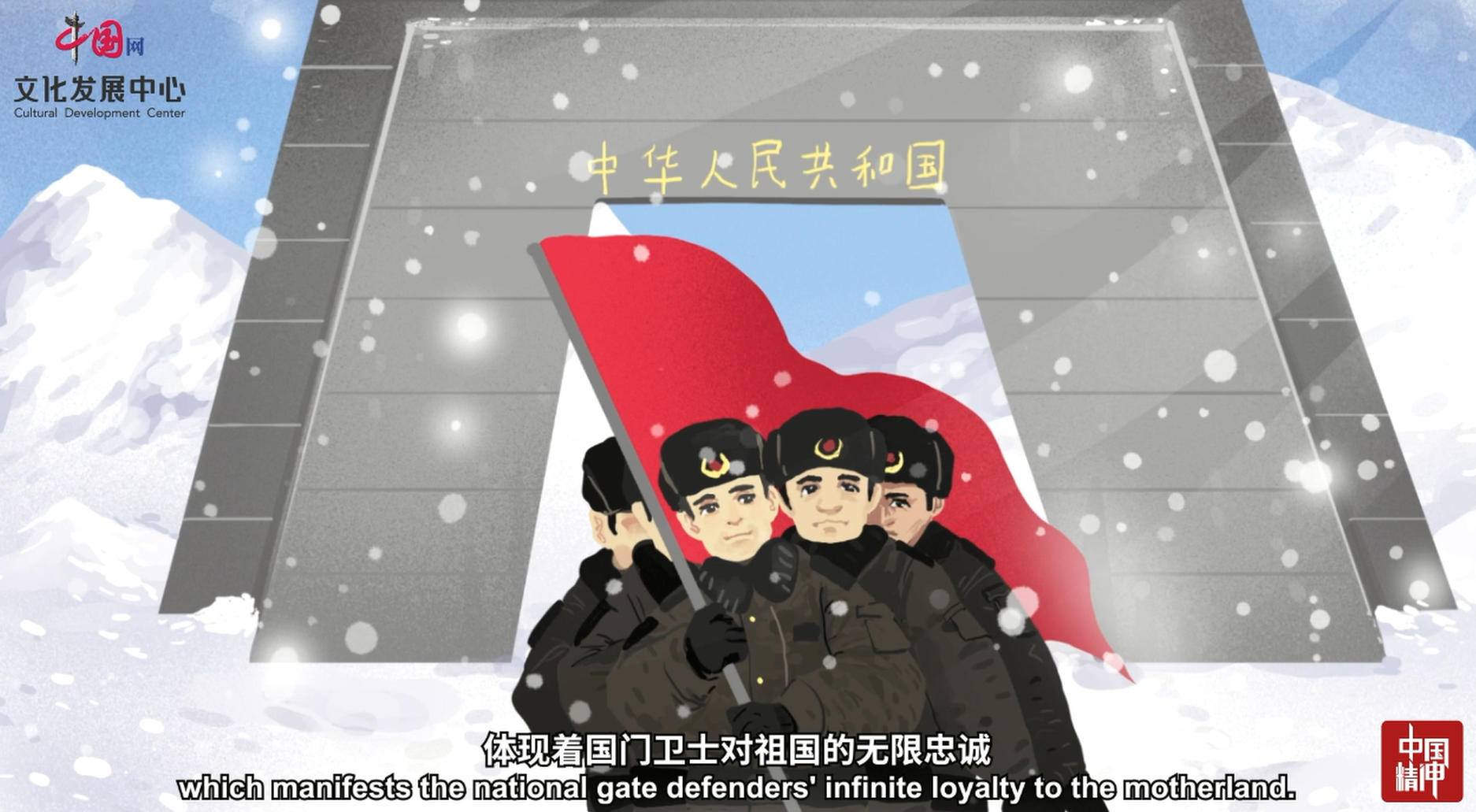
2023年9月11日,習近平總書記給紅其拉甫海關全體關員回信,稱讚他們“克服高寒缺氧等困難,紮根雪域邊疆的國門一線,忠於職守,默默奉獻,創造了不平凡的業績,展現了新時代海關人奮發有為的精神風貌”,勉勵他們“築牢國門安全屏障,助推高品質發展、高水準開放,當好讓黨放心、讓人民滿意的國門衛士”。
In a reply letter to the staff of the Khunjerab Customs on September 11, 2023, President Xi Jinping praised that despite difficulties such as severe cold and oxygen deficiency in the high-altitude area, they remain devoted to their duties of defending the national gate in the frontier and have made remarkable achievements through silent sacrifice, demonstrating the enterprising spirit of customs workers in the new era. He also encouraged them to maintain the security of the national gate and promote high-quality development and high-standard opening up as customs guards living up to the expectations of the Party and the people.
紅其拉甫口岸位於新疆喀什地區塔什庫爾幹塔吉克自治縣境內,地處帕米爾高原,是目前世界海拔最高的海關監管口岸,也是中國與巴基斯坦的唯一陸路通道。這裡自然環境惡劣,平均海拔4500米,空氣含氧量不到平原地區的50%,氣溫最低可達零下40多度,全年無霜期僅82天,被稱為“生命禁區”“死亡雪海”。
The Khunjerab Port, located on the Pamir Plateau in Tashikurgan Tajik Autonomous County, Kashgar, Xinjiang Autonomous Region, is the customs port with the highest altitude in the world. It is also the only land passage between China and Pakistan. With an average altitude of 4,500 meters, the area suffers a harsh natural environment. Here, the oxygen content is less than 50% of that in plain regions, the temperature can drop to minus 40 degrees Celsius, and there are only 82 frostless days each year. For this reason, the area is called the “forbidden zone of life” and “snow land of death.”

當地人用“天上無飛鳥,地上不長草,風吹石頭跑,氧氣吃不飽,四季穿棉襖”來描述這裡的惡劣環境。新中國成立後,紅其拉甫口岸曾處於半封閉狀態。1969年,中國與巴基斯坦開始進行邊境易貨貿易。喀什海關派駐“明鐵蓋工作組”籌建紅其拉甫海關,監管中巴邊貿和旅客進出境。當時,紅其拉甫海關第一任關長劉敬華帶著“一頂帳篷七個人,三頭牦牛一口鍋”,在帕米爾雪峰下紮下了營盤,這就是著名的“帳篷海關”。紅其拉甫建關之路就在這樣艱苦的條件下拉開序幕。
A local saying depicts the harsh conditions of the area: “There are no birds flying in the sky and no grass growing on the ground; Strong winds can blow stones away. People suffer oxygen deficiency and have to wear cotton-padded coats all year round.” After the founding of the People’s Republic of China, the Khunjerab Port was once semi-closed. In 1969, China and Pakistan began barter trade in their border areas. The Kashgar Customs sent the Mingtiegai task force to establish the Khunjerab Customs to oversee border trade and personnel exchange between China and Pakistan. At the time, Liu Jinghua, the first head of the Khunjerab Customs, led seven people and three yaks to settle down in the snow-covered Pamirs. They shared a tent and a pot. Hence, their customs was nicknamed the “tent customs.” The construction of the Khunjerab Customs kicked off in such harsh conditions.
英雄的精神在這裡傳承,對祖國清澈的愛在這裡奔流。多年來,一代又一代紅其拉甫海關人堅守雪域高原、戈壁風口,抗缺氧、戰嚴寒,以缺氧不缺鬥志、缺氧不缺精神的勇氣和毅力,忠誠履職,艱苦奮鬥,形成了“特別能吃苦、特別能戰鬥、特別能忍耐、特別能奉獻”的紅其拉甫海關“四特”精神,體現著國門衛士對祖國的無限忠誠。
The heroic spirit of those pioneers has been passed down from generation to generation, so has been their love of the motherland. Across generations, the workers of the Khunjerab Customs hold fast to the snow-covered, desert plateau and fight oxygen deficiency and extreme cold. With strong morale, courage and perseverance, they remain devoted to their duties through hard work, and forge the spirit of the Khunjerab Customs – namely, “extremely hardworking, extremely high morale, extremely perseverant, and extremely dedicated,” which manifests the national gate defenders’ infinite loyalty to the motherland.